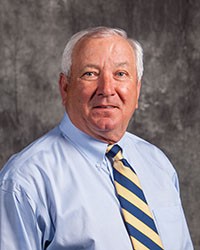 Facebook/MPD
Facebook/MPD
A few members of the Memphis City Council voiced reservations Tuesday about lifting the residency requirements for the city’s police and fire personnel.
The ordinance up for discussion would allow voters to choose whether or not Memphis Police Department (MPD) and Memphis Fire Department (MFD) personnel should have to reside in the city or county, or if they should be allowed to live up to two hours away. If approved by the council, voters will make the ultimate decision on the ballot next fall.
Chief operating officer for the city, Doug McGowen, said this is an effort to do “everything in our power to lower the barrier to those who want to serve the citizens of Memphis.”
Currently, 12 percent of MPD officers live outside the city and county, MPD director Michael Rallings said. Forty-two percent live in the city.
[pullquote-1]
Rallings said that removing the residency requirements would aid the department with recruitment and help it reach its goal of having 2,300 commissioned officers. To date, there are 2,062 officers and another 85 in the training academy.
“As we continue to try and hire more officers and firefighters, I would hope we would remove any barrier to that,” Rallings said. “I just ask that you consider placing the issue back on the ballot and let the voters decide.”
Councilman Martavious Jones questioned whether lifting the residency requirements would assist recruiting efforts, as he said police hiring is a problem across the country — not one that is unique to Memphis: “Opening this up does not alleviate are recruitment and hiring problems.”
“Looking at the big picture,” Jones also said that allowing officers to live outside of the city could further exacerbate Memphis’ poverty rate. “Why should we let these high-paying, middle-class jobs leave our city?” he said. “We would open up the floodgates. We would not be doing ourselves any favors by doing anything that drives high-paying jobs out of here.”
Finally, Jones questioned whether it makes sense for first responders to live up to two hours outside of the city, especially in the case of a major emergency.
“First responders living two hours out?” Jones said. “What are they responding to? They can’t respond. I don’t see how this makes the recruiting effort easier or the city safer.”
[pullquote-2]
Councilwoman Cheyenne Johnson also expressed reservations about the ordinance.
“Part of being a part of Memphis administration is believing in Memphis,” Johnson said. “And if you believe in Memphis, you can find a home in Memphis. If citizens can’t believe officers are living next door or in community, it hurts the image the police and fire departments are trying to promote throughout city.”
Councilwoman Gerre Currie, one of the sponsors of the ordinance, disagreed saying that “whether they are two hours out or not I’m not going to second-guess personnel on their efforts.”
The council will return to this discussion in three weeks. MPD officials are slated to give a presentation on the department’s recruiting efforts to date then.

 MPA
MPA  MFA
MFA